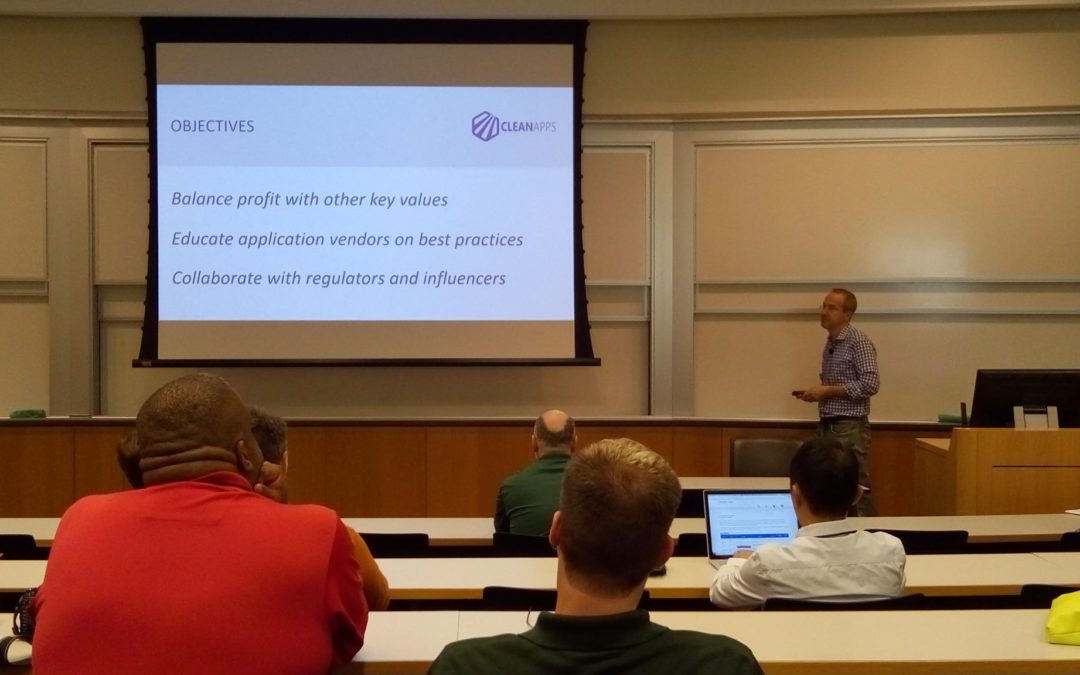As I wrote in my email to members before departing for Philadelphia, Kyle Reagan and I had the privilege of speaking on July 10 at a conference at the Wharton School of Business. We presented on a subject near and dear to the hearts of everybody who’s supportive of CleanApps.org’s mission: cleaning up the app marketplace so it’s fair and profitable for responsible businesses, and respects consumers.
The conference attendees – who included technology leaders from business schools across the United States and abroad – were extremely engaged and expressed palpable enthusiasm and support for the cause. Our presentation was probably about 40 minutes long, but we had about 25 minutes of questions, comments, and follow-up discussion, and numerous attendees crowded around me and Kyle afterwards to talk more and a few even volunteered to tell our story to the thousands of business school students and faculty they work with.
And here’s another data point: close to 90% of the audience raised their hands when I showed them a screen shot of a computer riddled with multiple extensions and asked if they had helped elderly relatives uninstall the apps responsible. And believe me: nobody said they wanted to keep doing that for the rest of their lives!
It’s clear we’re at a special moment in the history and evolution of the internet. Since the November 2016 U.S. election, we’ve seen extensive media attention devoted to fake news and privacy breaches, phony social media followers, alleged involvement by Russia to sabotage large technology platforms and influence American elections, and the negative impact that social media and smart phones may have on mental health. With many of the internet’s foremost innovators and pioneers now engaged in soul-searching as to where they went wrong (see, for example, http://nymag.com/selectall/2018/04/an-apology-for-the-internet-from-the-people-who-built-it.html) and how the balance between user engagement and safety and security went so far off the rails, the opportunity to bring key stakeholders together to clean up app fraud is massive. And we know malware and deception in this space is not new – this has been an unfortunate part of software monetization for almost two decades now.
But at a watershed moment like this, we have a special opportunity to address the problem. To do something truly transformational. To realize CleanApp.org’s vision: To help responsible app makers, developers, and promoters thrive, and to ensure a fair app marketplace where consumers are respected.
Our talk at Wharton made us feel even more confident that the zeitgeist is in our favor. It’s not if responsible app makers can perform better versus competition that harms consumers, and if consumers can be better protected, but how fast all this becomes the norm. And at CleanApps.org, we’re thrilled to be part of the movement to make it happen soon.
Thanks again for your continued support, and please keep sending new members our way!

